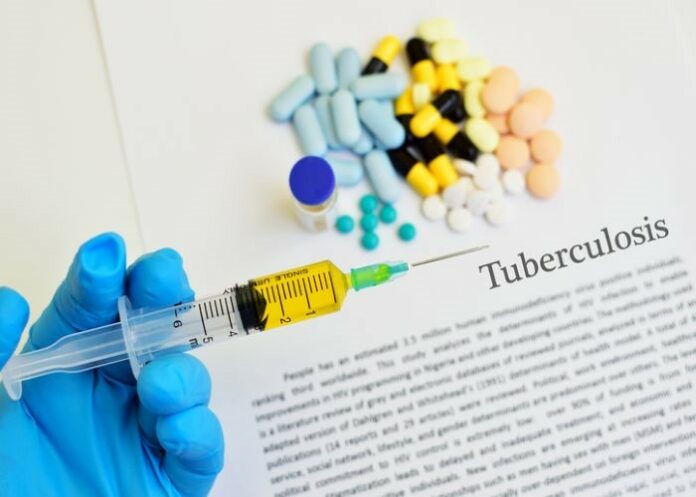The world’s largest clinical trial for multi-drug-resistant tuberculosis (MDR-TB) has found that the two new shortened treatment regimens are safe and effective, and not only that, it also indicates lower patient direct costs.
The long-awaited results from stage two of the STREAM randomised clinical trial were recently released in The Lancet medical journal and shared at the Union World Conference on Lung Health, hosted virtually last week.
‘Safety efficacy’
ID Rusen, senior vice-president of Vital Strategies and sponsor for the STREAM trial, said: “In STREAM stage 2, we generated robust scientific evidence regarding the safety, efficacy and cost-effectiveness of two shortened regimens of MDR-TB. This provides guideline development groups and national TB programmes with better information to underpin their decisions about the most appropriate treatments.
“While we are pleased with the performance of the regimens tested and the evidence generated, there is still an urgent need to build upon these results and improve the efficacy and safety of MDR-TB regimens available,” he said.
The burden of taking MDR-TB treatment
Until 2016, the recommended treatment for MDR-TB typically included more than 7 200 pills and 240 injections over 24 months. But in 2017, STREAM stage 1 confirmed that a nine-month treatment regimen was as effective.
Results from stage 2 have demonstrated that a fully oral nine-month regimen has superior efficacy to the control regimen from stage 1. The result ensures that decision-makers have the highest evidence available to guide their decisions about optimal MDR-TB treatment regimes.
According to the study, the six-month regimen is the most effective, reports Health-e News.
“A total of 82.7% of participants receiving the fully oral regimen had a favourable outcome compared with 71.1% receiving the control regimen,” read the study.
“The six-month regimen, which contained bedaquiline and an injectable medicine for an abbreviated period of two months, was also more effective than the control regimen. A total of 91.0% of participants receiving the six-month regimen had a favourable outcome compared with 68.5% in concurrent controls.”
Fewer failures and relapses
Professor Andrew Nunn, STREAM co-chief investigator at the Medical Research Council (MRC) clinical trials unit, is upbeat about the findings.
“It is particularly encouraging that the fully-oral and six-month regimes are significantly better since there are fewer failures and relapses,” he said.
From March 2016 to January 2020, 1 436 participants were screened, and 588 randomly assigned to the long, control, oral or six-month regimen.
Participants were recruited in Ethiopia, Georgia, India, Moldova, Mongolia, South Africa and Uganda.
Fewer cases of hearing loss
The STREAM stage 2 study also finds that both bedaquiline-containing regimens had superior efficacy compared to the nine-month injectable-containing regimen, with fewer cases of hearing loss.
Professor Sarah Meredith, the co-chief investigator at University College London (UCL), confirmed the good news.
“After carefully monitoring all participants, we were pleased that no concerning safety signals were identified. In addition, fewer participants experienced severe hearing loss. This is important information, as hearing loss has been a concern for patients taking earlier MDR-TB treatments,” she said.
Multi-drug-resistant (MDR) or rifampicin-resistant TB is challenging to treat, and historically, outcomes have been poor. Until the past few years, very little evidence from randomised controlled trials was available to guide management. Globally, only one in three people who developed MDR or rifampicin-resistant TB in 2020 were started on treatment.
Although outcomes are improving, only 59% of those starting treatment in 2018 completed it. Effective short and well-tolerated regimens that are easy to administer are urgently needed.
“The results of STREAM stage 2 should be considered in the context of both the control regimen and the available evidence regarding the efficacy and safety of regimens. STREAM stage 2 makes an important contribution to the growing body of evidence available to support treatment guidelines for MDR and rifampicin-resistant TB. The health economic components of STREAM stage 2 also provide evidence on the probable costs of their implementation from both provider and patient perspective,” read the study.
At least 1.6m people have died of TB since 2020.
Study details
A revolution in the management of multidrug-resistant tuberculosis
Keertan Dheda and Christoph Lange.
Published in The Lancet on 8 November 2022
Multidrug-resistant (MDR) tuberculosis (resistance to rifampicin and isoniazid) or rifampicin-resistant tuberculosis has increased by about 20% annually over the past decade and underpins almost a quarter of global tuberculosis mortality.
In some countries, such as Russia and Belarus, almost half of all patients with tuberculosis have rifampicin-resistant tuberculosis.
Unmet needs and challenges concerning drug-resistant tuberculosis include suboptimal diagnosis (about 60% of cases remain undiagnosed), inadequate access to effective drugs (about 30% of patients receive appropriate treatment), and poor treatment outcomes (treatment success is achieved in only about 60% of patients).
Key reasons for the high mortality and poor outcomes of drug-resistant tuberculosis are the use of regimens with suboptimal efficacy, considerable duration (length of treatment), high toxicity facilitating poor compliance, and the use of painful injectable drugs.
Full STREAM Report (Open access)
Health-e News article – MDR-TB STREAM trial delivers promising results (Creative Commons Licence)
See more from MedicalBrief archives:
STREAM results provide insight into 9-month treatment regimen for MDR-TB
New antibiotic-resistant genes identified in TB in 23-country analysis
Long-term effectiveness of shortened DR-TB treatment regimen
Efficacy, safety and economic impact of shortened MDR-TB treatment

